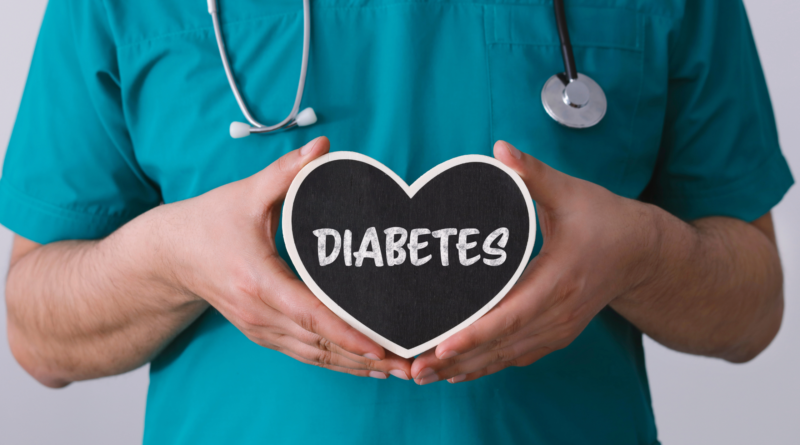How to reverse Diabetes with lifestyle modifications?
Is it possible to reverse Diabetes with lifestyle modifications?
Diabetes mellitus, commonly known as diabetes, is a metabolic disease that causes high blood sugar. Diabetes is caused by a relative or absolute deficiency of insulin action. Insulin is a hormone made by pancreas, it moves sugar from the blood into cells to be stored or used for energy.
With diabetes, body either doesn’t make enough insulin or can’t effectively use the insulin it does make.
There are two main types of diabetes:
Type 1… diabetes is an autoimmune disease. The immune system attacks and destroys cells in the pancreas, where insulin is made. It’s unclear what causes this attack. About 10 percent of people with diabetes have this type, Type 1. It’s usually diagnosed in children and young adults (but can develop at any age). It was once better known as “juvenile” diabetes. People with Type 1 diabetes need to take insulin every day. This is why it is also called insulin-dependent diabetes.
Type 2… diabetes. With this type, your body either doesn’t make enough insulin or your body’s cells don’t respond normally to the insulin (insulin resistance) This is the most common type of diabetes. Up to 95% of people with diabetes have Type 2. It usually occurs in middle-aged and older people. Other common names for Type 2 include adult-onset diabetes and insulin-resistant diabetes.
Prediabetes… It is the condition in which blood glucose levels are higher than normal but not high enough to be officially diagnosed as Type 2 diabetes.
⭐ Who gets diabetes? What are the risk factors?
Factors that increase your risk differ depending on the type of diabetes…
Risk factors for Type 1 diabetes include:
- Having a family history (parent or sibling) of Type 1 diabetes.
- Injury to the pancreas (such as by infection, tumor, surgery or accident).
- Presence of autoantibodies (antibodies that mistakenly attack your own body’s tissues or organs).
- Physical stress (such as surgery or illness).
- Exposure to illnesses caused by viruses
Risk Factors for prediabetes and Type 2 diabetes include
- Family history (parent or sibling) of prediabetes or Type 2 diabetes.
- Being African-American, Hispanic, Native American, Asian-American race or Pacific Islander.
- Being overweight.
- Having high blood pressure.
- Having low HDL cholesterol (the “good” cholesterol), high LDL cholesterol and high triglyceride levels.
- Being physically inactive.
- Being age 45 or older.
- Having gestational diabetes or giving birth to a baby weighing more than 9 pounds.
- Having polycystic ovary syndrome.
- Having a history of heart disease or stroke.
- Being a smoker.
☀ Can diabetes be cured or reversed?
Depending on the type of diabetes and its specific cause, it may or may not be possible to reverse diabetes.
**Successfully reversing diabetes is more commonly called achieving “remission.”
In Simplest terms, the expert panel defined Type 2 diabetes remission as having a blood-sugar level below the established threshold for a diabetes diagnosis for at least three months without taking diabetes medication. That would be below, for example, 6.5%Hb A1c, for the blood test that’s used to get a three-month average of blood sugar.
Type 1 diabetes is an immune system disease with some genetic component. This type of diabetes can’t be reversed with traditional treatments.
☀Prediabetes and Type 2 diabetes, can be reversed with a lot of effort and motivation in many cases.
For this, patients have to reverse all their risk factors for disease. Although diabetes risk factors like family history and race can’t be changed, there are other risk factors that you do have some control over.
Adopting some of the healthy lifestyle habits listed below can improve these modifiable risk factors and help to decrease your chances of getting diabetes:
⭐ Steps to reverse Type 2 diabetes and its related conditions include these lifestyle changes:
- Keeping track of your blood sugar levels (e.g., HbA1C test) and blood pressure at home.
- Exercising regularly; If you’re not active now, it’s time to start. Your goal should be 30 minutes of activity that makes you sweat and breathe a little harder most days of the week. The American Diabetes Association suggests getting at least 150 minutes per week of moderate to vigorous-intensity physical activity in addition to 2 to 3 sessions of resistance training per week. An active lifestyle helps you control your diabetes by bringing down your blood sugar levels and maintaining weight. Other benefits include improved mood, reduced “bad” LDL cholesterol, and healthier bones.
- Making significant dietary changes; diets must be high in nutrition and fiber and low in fats and calories. The diet should include whole, minimally processed foods, with fiber-rich fruits and vegetables, complex carbohydrates in moderation, lean protein, and healthy fats. Added sugars and refined grains are better avoided. Follow a Mediterranean diet, this heart-healthy diet uses lots of fruits and veggies as well as healthy fats nuts, olive oil, legumes, and low sugar. You can also follow DASH diet (Dietary Approaches to Stop Hypertension), this diet plan is designed to help lower blood pressure, it emphasizes fruits, vegetables, low-fat dairy, whole grains, lean meats, fish, nuts, and beans. Keep a food diary and calorie count of everything you eat. Cutting 250 calories per day can help you lose ½ pound per week.
- Losing weight to attain a healthier body weight….With type 2 diabetes, body doesn’t properly respond to the insulin produced by the pancreas, and blood glucose levels go up, according to the National Institute of Diabetes and Digestive and Kidney Diseases (NIDDK). That’s called insulin resistance, and it’s often linked to excess weight. Weight loss will actually help make the body more sensitive to the insulin and allow that insulin resistance to decrease. Obesity increases the risk of developing Type 2 diabetes by at least six times, regardless of genetic predisposition. If you are overweight or obese, with a body mass index (BMI) of 25 kilograms per square meter (kg/m2) or greater (in Asians, 23 kg/m2 or greater), your chances of developing diabetes are higher. Losing weight by 5% to 7% can dramatically lower your risk. Body Mass Index is a simple calculation using a person’s height and weight. The formula is BMI = kg/m2 where kg is a person’s weight in kilograms and m2 is their height in metre squares.
- Quitting smoking if you smoke…because smoking is a serious risk factor for numerous health issues. Smoking can increase the risk of complications and may even trigger type 2 diabetes.
- Avoiding alcohol and other beverages high in sugar… alcohol can lower blood sugar levels, it also has the potential to increase them. Alcohol can also cause Hypoglycemia Unawareness and weight gain in diabetics. All alcohol contains about 7 calories per gram, which is more than carbohydrates (4 calories per gram) and only slightly less than fat (9 calories per gram).The Centers for Disease Control and Prevention (CDC) and other federal agencies define that as one drink per day or less for women and two drinks per day or less for men. One drink is defined as containing 14 grams (0.6 ounces) of pure alcohol. These amounts comprise one standard drink:
- 5 ounces (oz) wine
- One 12-oz beer
- One 12-oz beer
- 1.5 oz of 80-proof spirits, such as rum, gin, or vodka
- 8 oz malt liquor
- Safest approach is to drink in moderation, choose beverages that are low in sugar and carbs, never drink on an empty stomach, and keep close tabs on your blood sugar levels before, during, and after drinking
- Manage stress. Researchers suggest that stress can be both a contributor to and a consequence of diabetes. People who are stressed may have higher levels of certain hormones that can affect how insulin works. When you’re stressed, blood sugar levels go up. Patients may have better control of sugar levels if they practice techniques that reduce stress levels i.e. Stress reduction strategies. Find ways to relieve stress — through deep breathing, yoga, or hobbies that relax you.
- Take medications – to manage existing risk factors (e.g., high blood pressure, high LDL cholesterol, other heart-related problems and other health conditions), as directed by your doctor.
- Regular Health Checkups at regular intervals to monitor diabetes and to watch for complications.
⭐ As the incidence of diabetes continues to increase globally, the fight against this chronic condition continues. New research explains not only what triggers type 2 diabetes but also how to reverse the condition. The trial was called the Diabetes Remission Clinical Trial (DiRECT), and one of its co-leaders was Prof. Roy Taylor from Newcastle University in the United Kingdom which *showed that intensive weight loss programs could help people with type 2 diabetes achieve remission without taking any medication*. Specifically, almost 9 out of 10 participants who managed to lose 15 kilograms or more in the DiRECT trial reversed their condition. After 2 years, more than one-third of these individuals had been free of diabetes and the need for diabetes medication for at least 24 months…. A small group, however, experienced relapse.
⭐ Type 2 diabetes is reversible under certain conditions, depending on a person’s lifestyle. But a lot still remains unclear—like how long remission generally lasts, because it varies. And experts stress that continued follow-up with health care providers—not only to monitor blood glucose but also to check for diabetes complications—is important.
⭐ ⭐ If a person does not make healthy lifestyle changes, type 2 diabetes will progress, and they will eventually need more medications to manage it. Poorly controlled diabetes can lead to serious consequences, causing damage to a wide range of body’s organs and tissues – including heart, kidneys, eyes and nerves.
⭐ In conclusion; high quality nutritional diet, physically active & stress free life, along with other important lifestyle determinants such as low or no alcohol consumption, no smoking and proper sleeping habits, should be promoted in order to curb the type 2 diabetes epidemic sweeping the world.





A precise & well-wrtitten post. Thanks heaps for sharing it.
magnificent points altogether, you just won a brand new reader.
What could you recommend about your post that you made
a few days in the past? Any sure?